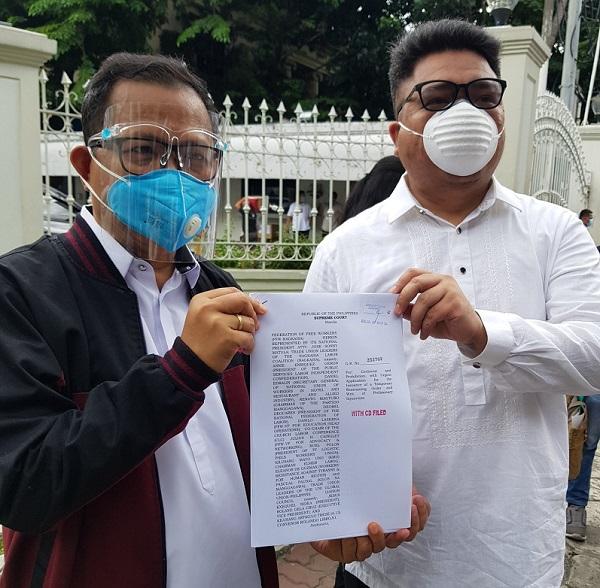In 9th SC petition, labor groups say anti-terror law has chilling effect on right to organize

In the ninth petition against the Philippines' new anti-terrorism law, labor groups told the Supreme Court (SC) that the legislation will have a "destructive chilling effect" on workers' right to organize.
The Federation of Free Workers, the trade union leaders of the Nagkaisa labor coalition, and the officials of other labor groups including Kilusang Mayo Uno, petitioned the SC to strike down what they said are unconstitutional provisions of the law.
The groups also urged the SC to issue a temporary restraining order against these provisions, namely Section 4, 5, 6, 9, 10, 11, and 12; paragraphs 1, 2 and 3 of Section 25; and Section 29 of the law.
These sections define terrorism and crimes related to terrorism, provide the process by which organizations and individuals are designated as terrorists, and allow for the up-to-24 day warrantless detention of suspected terrorists, respectively.
Like the petitioners that preceded them in contesting the law, the labor groups alleged its definition of terrorism is "vague and overly broad" and that Section 29 violates the constitutional guarantee against unreasonable seizures and detention.
In addition, they claimed that the law poses a "chilling and destructive effects" on workers' right to freedom of expression, association and to petition the government for redress of grievances.
"While petitioners recognize the efforts of those who sincerely keep our people safe, they strongly oppose the Anti-Terrorism Act of 2020 (otherwise known as Republic Act 11479) in its present form which runs contrary and repugnant to the Constitution," they said in the petition.
"Their greatest concern is that the unrestrained power given to the executive department by the assailed law would be an instrument to terrorize the ordinary citizens who are not terrorists -- or be used to aggravate the situation of the workers who are already victims of terrorism or terrorist acts," they added.
The labor groups told the court that workers' right to organize is enshrined in the Constitution and warned that all the guaranteed workers' rights are "in serious danger of being further eroded" by the enactment of the anti-terrorism law.
The law's definition of terrorism exempts advocacy, work stoppages, and humanitarian action if they are "not intended to cause death or serious physical harm to a person, to endanger a person's life, or to create a serious risk to public safety."
While the labor groups acknowledged the provision, they argued that "the danger is that the Anti-Terrorism Council's wide powers to determine what constitute serious risk, which if unleashed, has the potential to negate all these rights of workers which they have struggled to win for several decades already."
The union leaders behind the petition added that law enforcers, even in past years, have been "harsh" with workers and that security forces are "actively involved in the suppression of union organizing."
Lawyers, lawmakers, human rights advocates, and other labor rights groups filed the first eight petitions against the anti-terrorism law.
The SC has ordered the consolidation of the petitions. It directed the respondent government officials to comment last week.
President Rodrigo Duterte signed the Anti-Terrorism Act of 2020 (Republic Act 11479) early this month despite objections from various groups, including the United Nations human rights body and the Bangsamoro Transition Authority.
"As we have said, the President, together with his legal team, took time to study this piece of legislation weighing the concerns of different stakeholders," presidential spokesperson Harry Roque said back then.
"The signing of the aforesaid law demonstrates our serious commitment to stamp out terrorism, which has long plagued the country and has caused unimaginable grief and horror to many of our people," he added.
On Wednesday night (Manila time), at least 45 US lawmakers called on the Philippine government to immediately repeal the law.
"We stand together in calling for the Philippine government to repeal the Anti-Terrorism Act of 2020 that risks further undermining human rights in the Philippines," Representative Janice Schakowsky of Illinois said.
"This law is overbroad and we believe it's already being used to stifle peaceful dissent and target civil society including human and labor rights groups in the Philippines," she added.
The lawmakers sent a letter to the Philippine ambassador to the US to raise their concerns about the new law. — RSJ, GMA News



